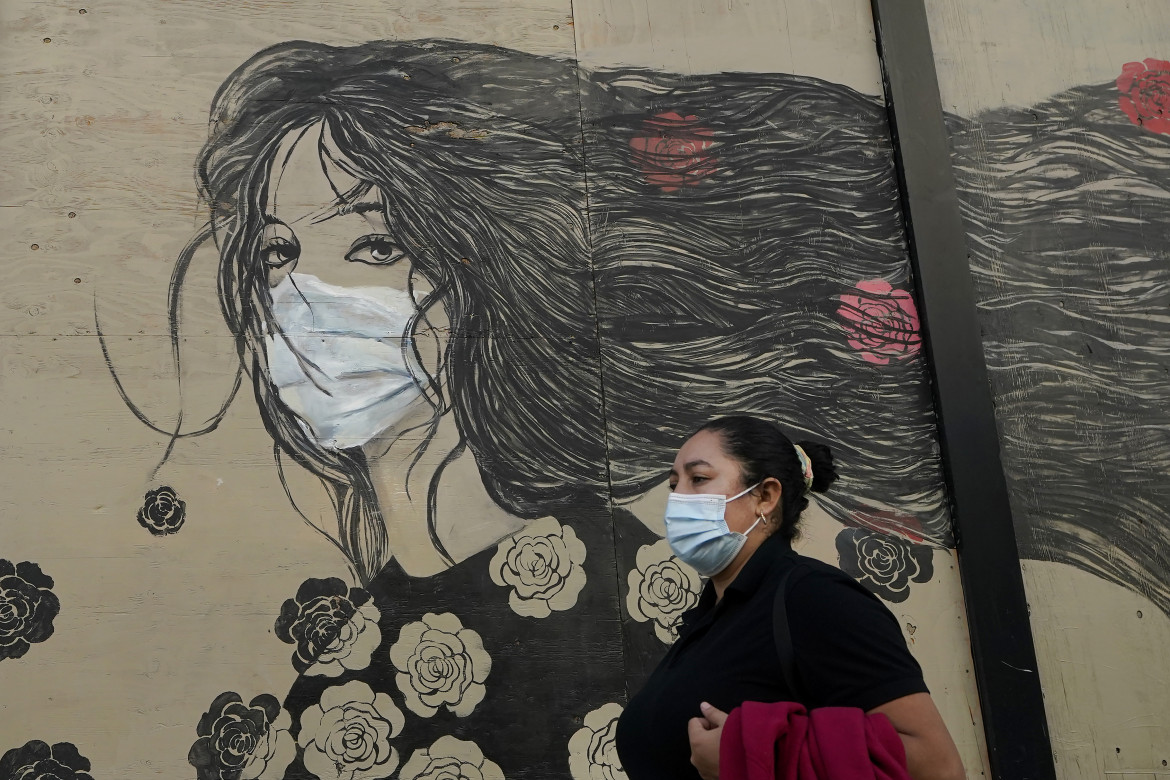Commentary
Seven ways the pandemic is disrupting society
The pandemic's second wave has created economic, political, environmental and social changes, most of which are devastating — with a few positive exceptions.

We have suddenly and dramatically entered the second wave of a pandemic that is changing and redesigning economic, social and political structures around the world. It’s having long-term effects, clustered around some basic issues. The first concerns Chinese hegemony. The country where it all began is also the country that first came out of it, and while the world is going into recession, China has resumed its unstoppable growth path, with a GDP that is estimated to grow by around 3% this year.
While international trade has fallen off a cliff, with the largest drop after the Second World War, China has compensated the lower propensity for exports of some industrial sectors with a powerful enlargement of the domestic market, starting from tourism, as Simone Pieranni reminded us in this newspaper. This path would also work for Italy, if there was a turning point in economic policy that oriented itself towards targeted investments in Southern Italy, from renewable energy to quality agriculture, the recovery of internal areas and the strengthening of universities and research centers.
The second lasting effect of this pandemic concerns democratic institutions. The Chinese success, both in controlling the spread of the virus and in the capacity for economic recovery, is putting the liberal democracy model in crisis, as it appears to be cumbersome, slow and ineffective. In addition, the “state of exception” stemming from the emergency generated by the coronavirus lets governments initiate authoritarian-style policies that initially enjoy the consent of the population. In Italy as well, we can see signs of this change in the attitude of some regional presidents who assume the role of local sheriffs, and in the use of the language of “war” that is spreading throughout Europe. Democracy will win if it can manage to be effective and efficient in fighting the pandemic without resorting to authoritarian means. A tall order.
The third effect is definitely a positive one. After 30 years of glory for the neoliberal ideology, with an advance that seemed unstoppable and involved every sector, a virus, an invisible entity, has brought it to its knees: the role of the state is coming out strengthened from this pandemic, as is the need to recover the role of health care, schools and social services as common goods. The tsunami of privatization, which started in the US and involved all the countries of the world, has been stopped.
The fourth effect is devastating: absolute poverty is growing all over the world, with people suffering from hunger and who are losing their jobs. In a capitalist economy, the economic recession is affecting the weakest groups first of all: precarious and marginalized workers, in the global South more than the North, small businesses more than large multinationals. The self-regulated market is powerless to meet the needs of large segments of the population: only public intervention can reduce the social malaise caused by this generalized recession.
The fifth effect concerns work and the spread of smart working. It mainly involves workers in the public administration and those in the private sector who carry out administrative activity, data processing, software programming, communications, journalism, etc. It is creating a strong and unprecedented division along these dimensions—between manual and intellectual work—and therefore a further fracture in the world of work, already deeply divided. It also reduces the social dimension, because the workplace has historically been a fundamental factor of socialization and raising the consciousness of workers.
The sixth effect concerns the environmental impact of this development model. During the months of lockdown, we saw an extraordinary drop in CO2 emissions. After the lockdown, we have returned to polluting just as before, or even worse: the fear of contagion has increased the use of private transport. The damage caused by polluting the planet, which is also measured in human lives, has been “buried” by the data about deaths from the coronavirus, and the whole debate on the effects of climate change has been put on stand-by. This is perhaps one of the greatest areas of damage due to this pandemic and how it has been managed by the media.
Finally, there is an impact that affects our relationship with our fellow human beings in our daily lives.
“There is nothing man fears more than to be touched by the unknown,” begins Elias Canetti’s famous essay Massa e Potere (Mass and Power). He continues: “All the distances that men have created around themselves are dictated by the fear of being touched. One closes oneself in one’s house, where no one can enter; only there does one feel relatively safe.”
Although he wrote this essay with different intentions, Canetti seems to be writing for us today: this is the condition in which we find ourselves, and from which we must escape as soon as possible. The fear of others, with a worrying impact on children that can only begin to be estimated in the next few years, has an immediate impact on the polis, the agora, social life and the political dimension of the human being.
We must resist this, and, respecting all anti-COVID safety regulations, continue to meet, to look each other in the face (even when wearing masks), to not close ourselves within the family circle and to avoid becoming reduced to passive spectators in front of the TV or mobile phone. Although the Internet has kept us connected by allowing us to participate in conferences and debates, it can never replace a real, personal, physical encounter.
Originally published at https://ilmanifesto.it/londa-lunga-della-pandemia-che-rimodella-il-pianeta/ on 2020-10-22
